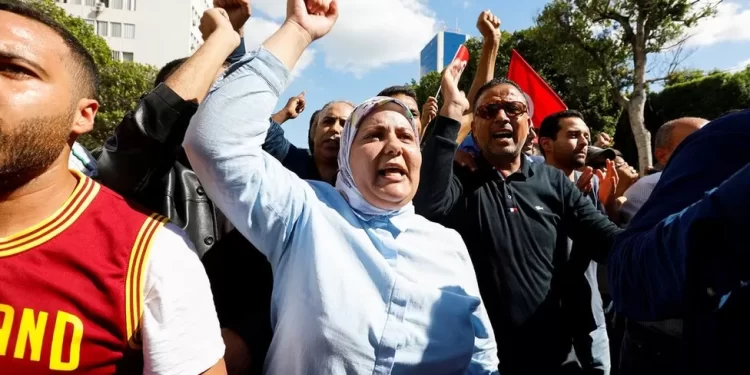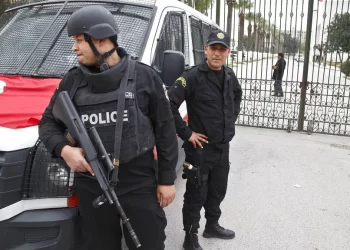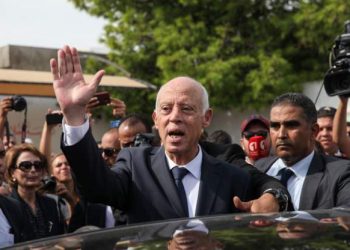Thousands of protesters have taken to the streets of Tunisia’s capital to demonstrate against the president.
Parallel demonstrations by political movements who are deeply opposed to each other were held in Tunis.
Both groups denounced Kais Saied as an autocrat who is reversing the democratic progress made since the 2011 uprising.
They also demanded accountability for the country’s economic crisis which has seen food and fuel shortages.
Critics of Mr Saied accuse him of staging a coup and attempting to turn Tunisia back into an autocracy – a system of government run by one person with absolute power.
After sacking the prime minister and suspending parliament in July 2021, a year later Mr Saied pushed through a constitution enshrining his one-man rule after a vote boycotted by the main opposition parties.
The new constitution replaced one drafted in three years after the Arab Spring in 2011 which saw Tunisia overthrow late dictator Zine al-Abidine Ben Ali.
It gave the head of state full executive control, supreme command of the army and the ability to appoint a government without parliamentary approval.
Mr Saied has said it was needed to break a cycle of political paralysis and economic decay.
He said his reforms were being done in the spirit of the 2011 revolution and would ensure a better future.
His supporters welcomed his actions, saying the country needed a strong leader to tackle what they see as a fractious and corrupt system.
On Saturday, protesters in central Tunis chanted, “down, down”, “revolution against dictator Kais” and “the coup will fall”.
One of the marches was organised by the National Salvation Front, a coalition of opposition parties including the Islamist-inspired Ennahda that had dominated Tunisia’s parliament before its dissolution by Mr Saied.
Ali Laarayedh, Tunisia’s former prime minister and a senior Ennahda official, told AFP news agency that the protest was an expression of “anger at the state of affairs under Kais Saied”.
“We are telling him to leave.”















